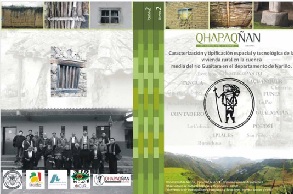Abstract
The Inca culture contributes in Colombia with pre-Hispanic architecture through the main artery of roads identified as the Qhapaq Nan, Andean road system that dates from the chronicles of historians since the conquest, which enabled the transformation and adaptability of the environment in time and space, with the emergence of new Hispanic culture, about the concepts of habitability and soil management in terms of production activities, ownership, size and shape of the earth. Study the definition of rural and rural housing of the middle basin Guáitara river in the southern department of Nariño, considering that this territory was inhabited by the people of the Grass in ancient times, and together with the Qhapaq Ñan Andean Highway System, form a cultural landscape, historical heritage of the region, makes it necessary to allow its value from various fields of knowledge through applied sciences such as architecture, geography, social sciences such as anthropology, sociology and the history. Housing is one of the most culturally important components of the people, because in it are embodied the worldview of its inhabitants; it is from there that people are projected to its geographical environment, social and economic structure of the region.
Apuntes is registered under a Creative Commons Attribution 4.0 International Public License. Thus, this work may be reproduced, distributed, and publicly shared in digital format, as long as the names of the authors and Pontificia Universidad Javeriana are acknowledged. Others are allowed to quote, adapt, transform, auto-archive, republish, and create based on this material, for any purpose (even commercial ones), provided the authorship is duly acknowledged, a link to the original work is provided, and it is specified if changes have been made. Pontificia Universidad Javeriana does not hold the rights of published works and the authors are solely responsible for the contents of their works; they keep the moral, intellectual, privacy, and publicity rights.
Approving the intervention of the work (review, copy-editing, translation, layout) and the following outreach, are granted through an use license and not through an assignment of rights. This means the journal and Pontificia Universidad Javeriana cannot be held responsible for any ethical malpractice by the authors. As a consequence of the protection granted by the use license, the journal is not required to publish recantations or modify information already published, unless the errata stems from the editorial management process. Publishing contents in this journal does not generate royalties for contributors.


